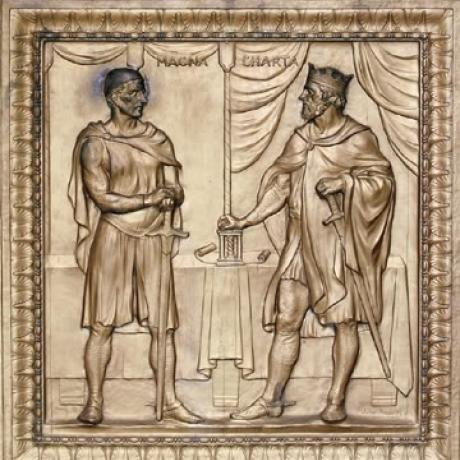Magna Carta served to lay the foundation for later declarations of rights in England and the United States. In attempting to establish checks on the king’s powers, this document asserted the right of “due process” of law. It also provided the basis for an idea of a “higher law,” one that could not be altered either by executive mandate or legislative acts. This concept, embraced by the leaders of the American Revolution, is embedded in the supremacy clause of the United States Constitution.
Magna Carta: Cornerstone of the U.S. Constitution
View Resource
Resource provided by National Endowment for the Humanities, EDSITEment Project
